[dropcap]P[/dropcap]erhaps nothing captures the silent air of dawn every even year as the Bukusu bells and songs in preparation of the season of circumcision of young boys, a traditional rite of passage from childhood to adulthood. [ Watch a hair-raising video at the end of the article]
The Luhya are still strong traditionalists as far as the rites of passage are concerned. Mr Makokha Wanyama, the chairman of traditional circumcisers from the Bukusu community in Bungoma, says each candidate has to be well prepared two months before the day of circumcision.
A candidate should volunteer. After “declaring his interest, he informs his father and traditionally he would be asked to step on a hot charcoal to mock fear. “It is at this point that the candidate will take a hen to a blacksmith in exchange of the two bells called “chinyimba”.
After acquiring the bells candidates meet at night to rehearse for the ceremony. This is meant to build courage to face the ‘lukembe’, the circumciser’s knife.
Wanyama says the rehearsal is done until the elders are convinced that the candidates are ready to face the knife. He believes that circumcision was oriented by God himself way back and is a second rite of passage according to the Bukusu community.
The night of long knives
According to him the Bukusu culture circumciser commonly referred to as “omukhebi” has inborn talent and he does not attend lessons for him to perform the rite. They believe circumcising is as a result of some powerful magical powers called “kumusambwa.”
All the circumcisers meet to sharpen the knives “chingembe” using jiko fire where they exchange views and also to bless the knives for the forthcoming work. This knife blessing ceremony,“khibita chingembe,” is incomplete without locally made brew, busaa, that is made from maize, sorghum and wheat.
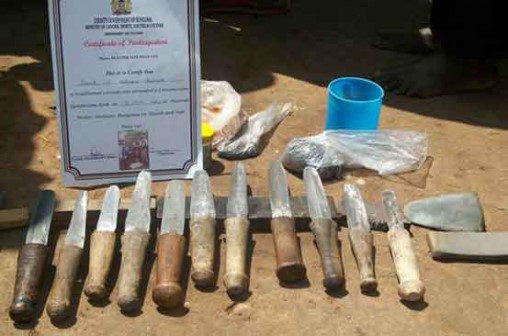
In an exclusive interview with KNA County Executive Member of Culture Evelyn Kakai said traditional organisers of the ceremony should not affect learning in schools. Bukusu elders led by John Sifuna exchanged views about the circumcision and urged the county government to commercialize their culture.
Qualities of circumciser
Sifuna, among other elders, brought out the qualifications of good circumcisers: he should be a person above thirty years be married with a first born boy. The person must be of good respect in the community and should not take more than 30 seconds to finish the job. Experienced ones take even less than five seconds.
Above all, he should be a person who can give sound moral advice to the candidates commonly known as “bita” after circumcision. “Khubita” as used in Bukusu culture refers to the act of advising and blessing candidates on thing such as marriage, education, living in society, sexuality among other “good things like the ones God promised Abraham when he accepted to be circumcised.”
According to Dr Isack Misiko, a herbalist and traditionalist, the Bukusu believe that circumcised boys will have an added advantage of minimized infection of sexually transmitted diseases like HIV/AIDs, which has been backed by scientific research.
READ: BUSINESS WHERE UNDERWEAR IS USED TO ATTRACT CUSTOMERS
On the day before circumcision, a candidate visits his uncle for a bull, which is slaughtered and the meat hung around the neck of the candidate to take it back home. The meat, which is called “likhoni”, is is to be eaten by all family members as a way of solidarity and acceptance of the rite.
He added that in the same night, the candidates dance around the compound with the bells as other people sing circumcision songs accompanied by local made brews, to prepare for the all-important event in the morning.
At the crack of dawn, boys are taken to the river to be smeared with clay soil all over the body mainly to lower the temperature to reduce bleeding after circumcision.
The clay is assumed to have other cultural meanings which the leaders cannot divulge.
“A mount of clay is stuck on the boys forehead and a grass ‘planted’ in it which performs the role similar to that of an antennae to pass information home to well prepare and also to communicate to ancestors about the circumcision,” he said.
Misiko says tradition demands that candidates whose parents are circumcisers are circumcised first with a different circumciser who is not the biological father. This should take place during the first week of August so as to allow their father to circumcise other candidates.
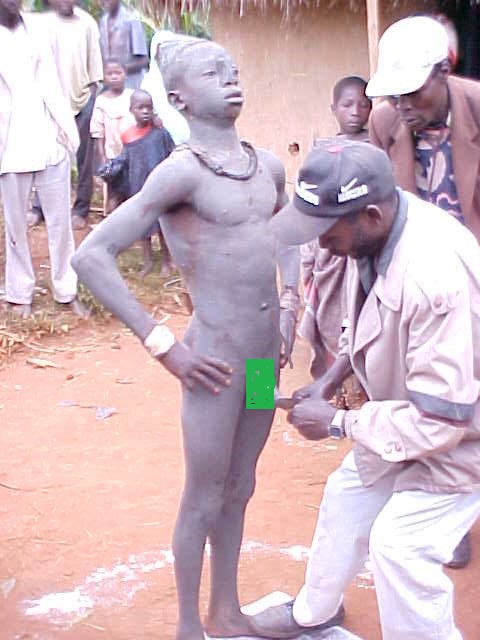
Misiko says their mandate is to preserve and promote culture stating that this year’s ceremony will be advertised to encourage both local and international tourists to come and experience the Bukusu culture. “We want to market this circumcision to the tourists to obtain an income,” Misiko said.
SEE ALSO: A WALK THROUGH KIONDO MAKING VILLAGE IN UKAMBANI
Sifuna says that they will work together during this period of circumcision and encourage the candidates to embrace the traditional cut. He also called upon traditional circumcisers to embrace technology by using the modern way, for instance, having each candidate to get ant-tetanus jab to avoid infection.
The Bukusu elder also called upon the circumcisers to work together with the medical practitioners in case of mishaps that may lead to excessive bleeding. Misiko promised to give medicine and uniforms to the traditional circumcisers. He also urged them to use one knife per candidate to avoid contraction of the deadly diseases like HIV/AIDs and hepatitis.
He also called them not to engage in witchcraft, a major challenge facing the operation. “We don’t circumcise because of money but because it’s our culture,” he noted.
Matching into adulthood
After initiation, the initiates commonly referred to as “bafulu” –stay until December where they don’t shave the hair nor take bath during the time. They are, at that time officially proclaimed warriors by the elders and are free to proceed for the next rite of passage immediately they feel they can raise money to sustain their family.
According to Misiko, approximately 10,000 will undergo the cut this year with most of them preferring the traditional circumcision.
He noted that the preparations are ongoing and the first candidates are expected to face the knife on August 1, 2018 as per the plan. He lauded the county government for having supported the traditional circumcision and embracing the Bukusu culture. [Story by Douglas Mudambo / KNA]
NEXT READ: A NIGHTOUT WITH A NIGHT-RUNNER

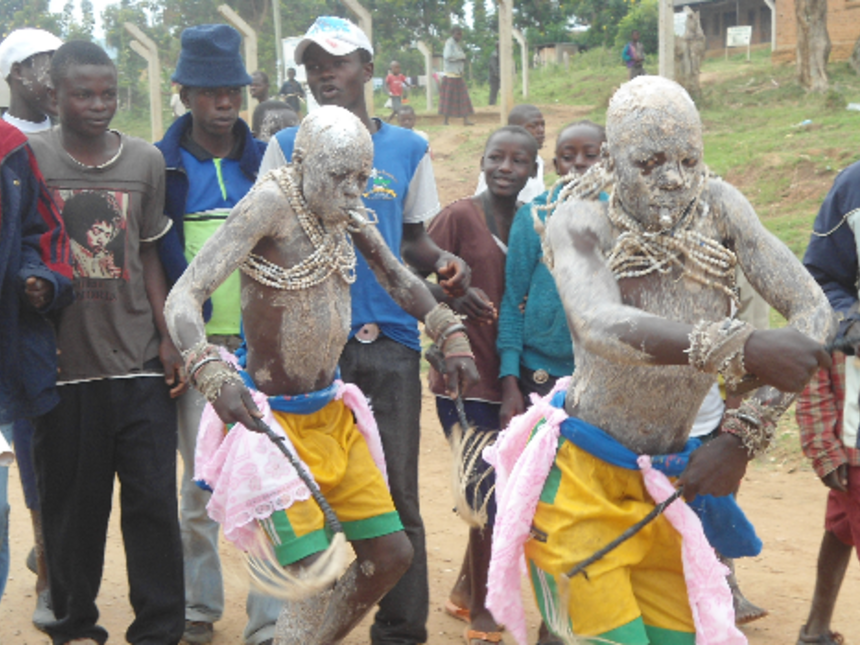









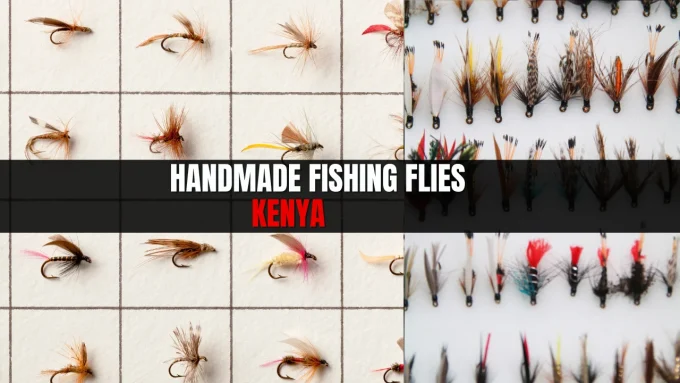
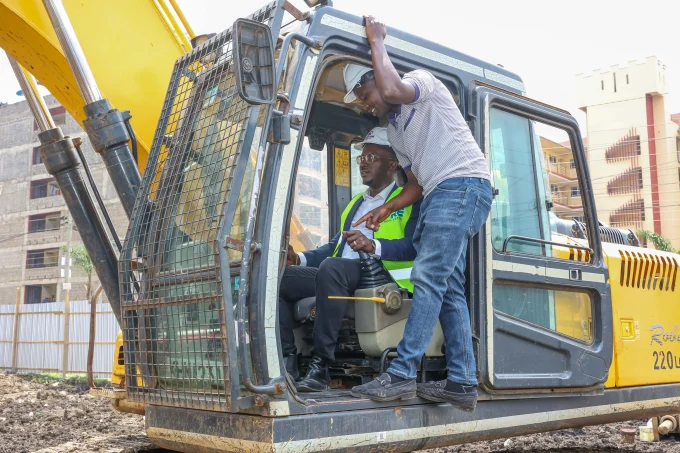
1 Comment